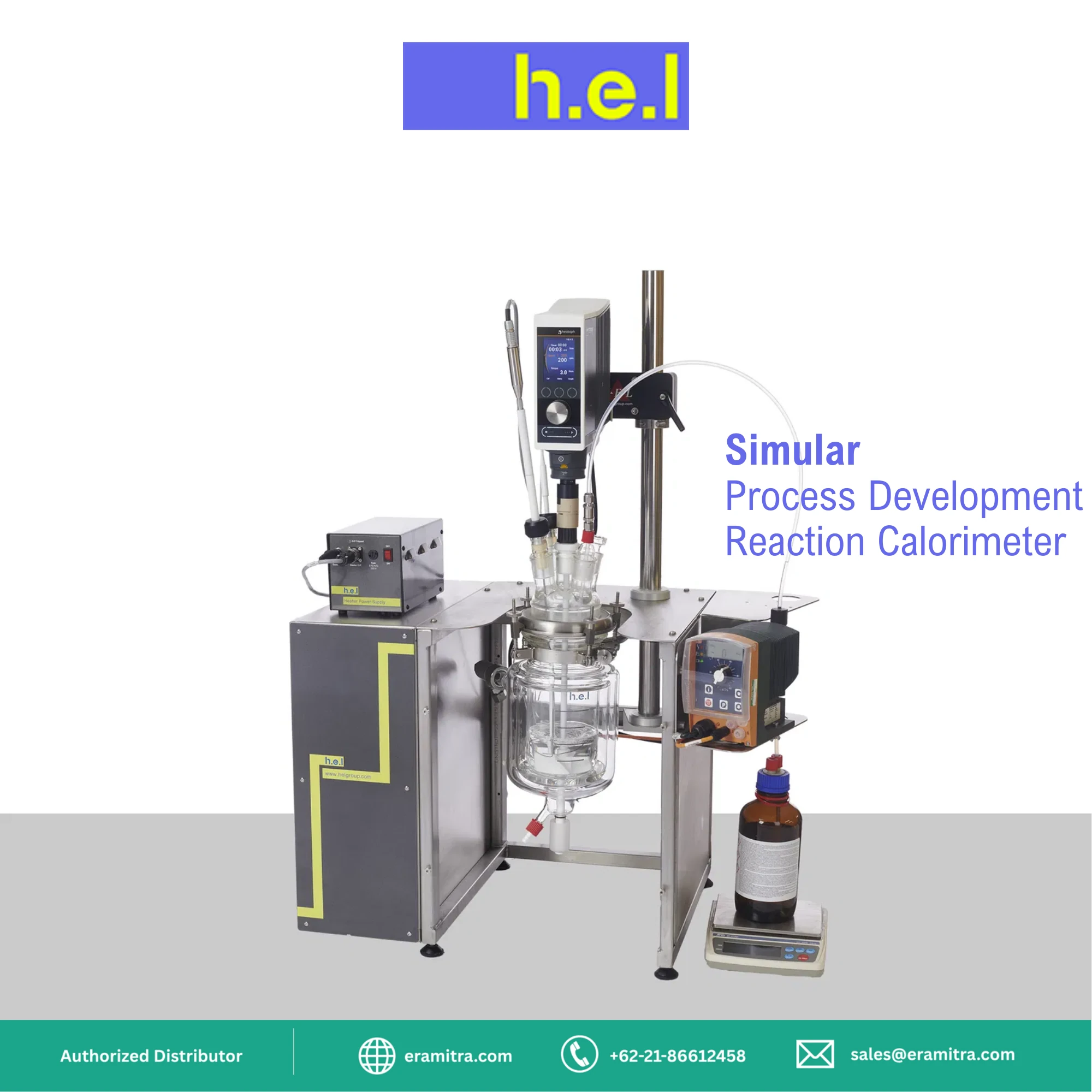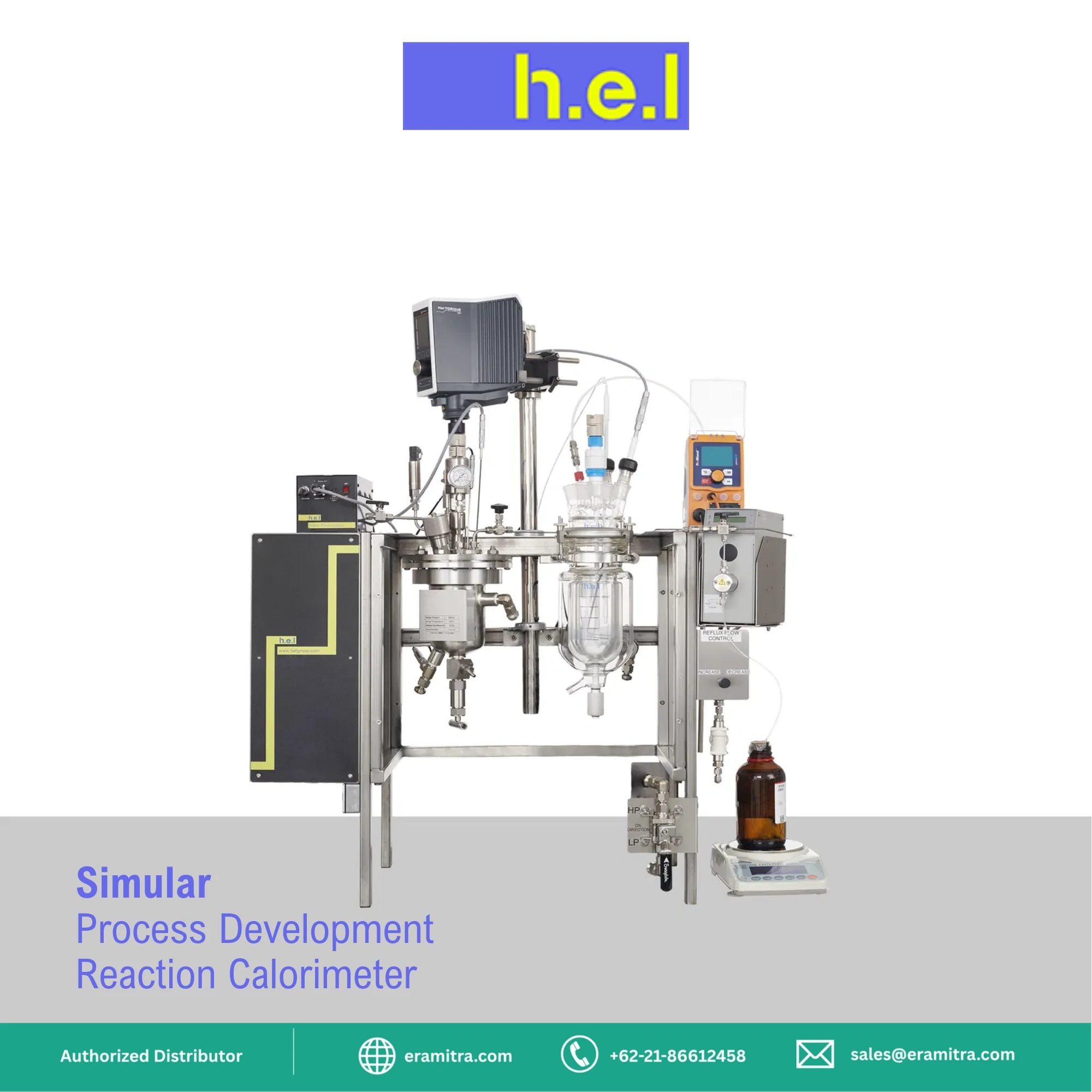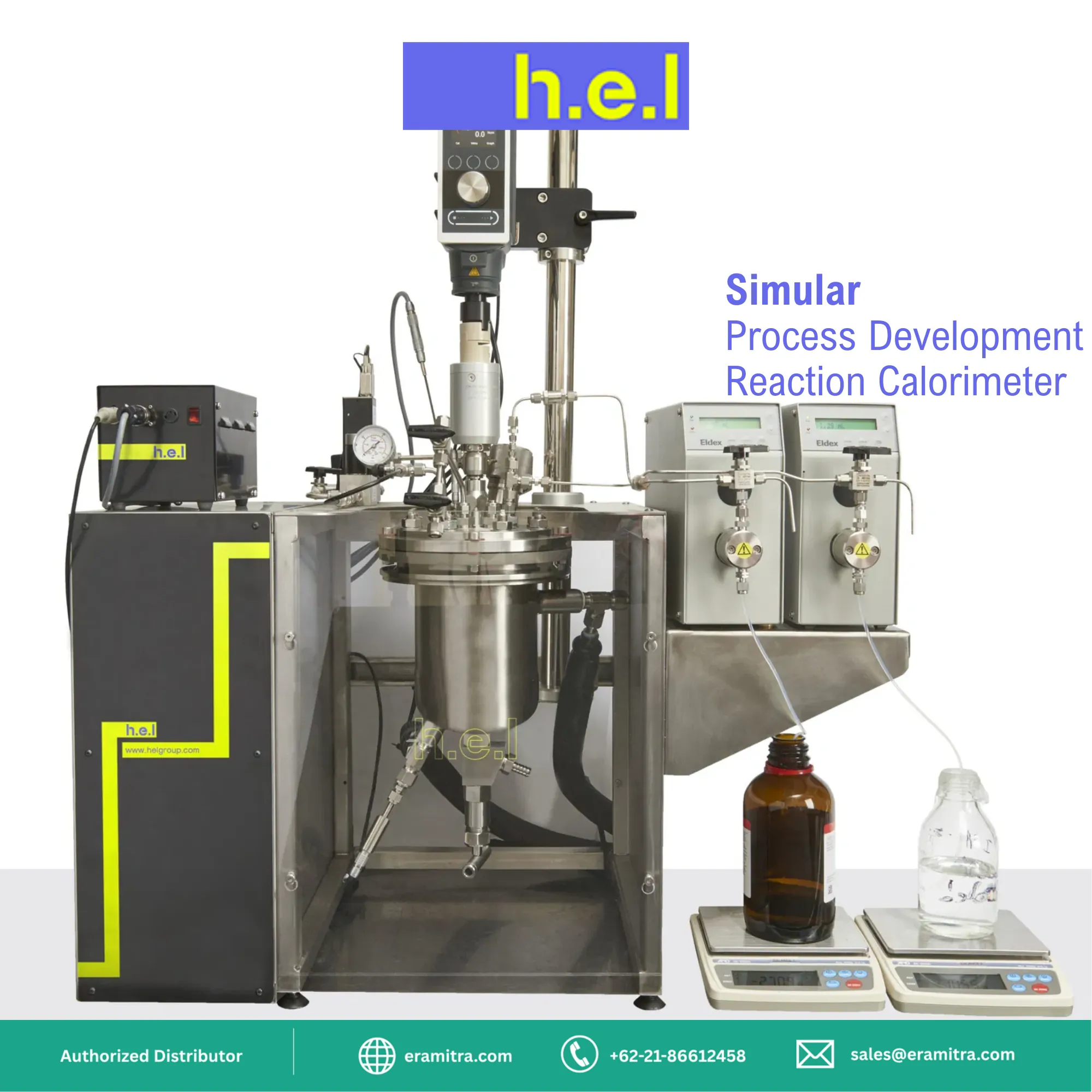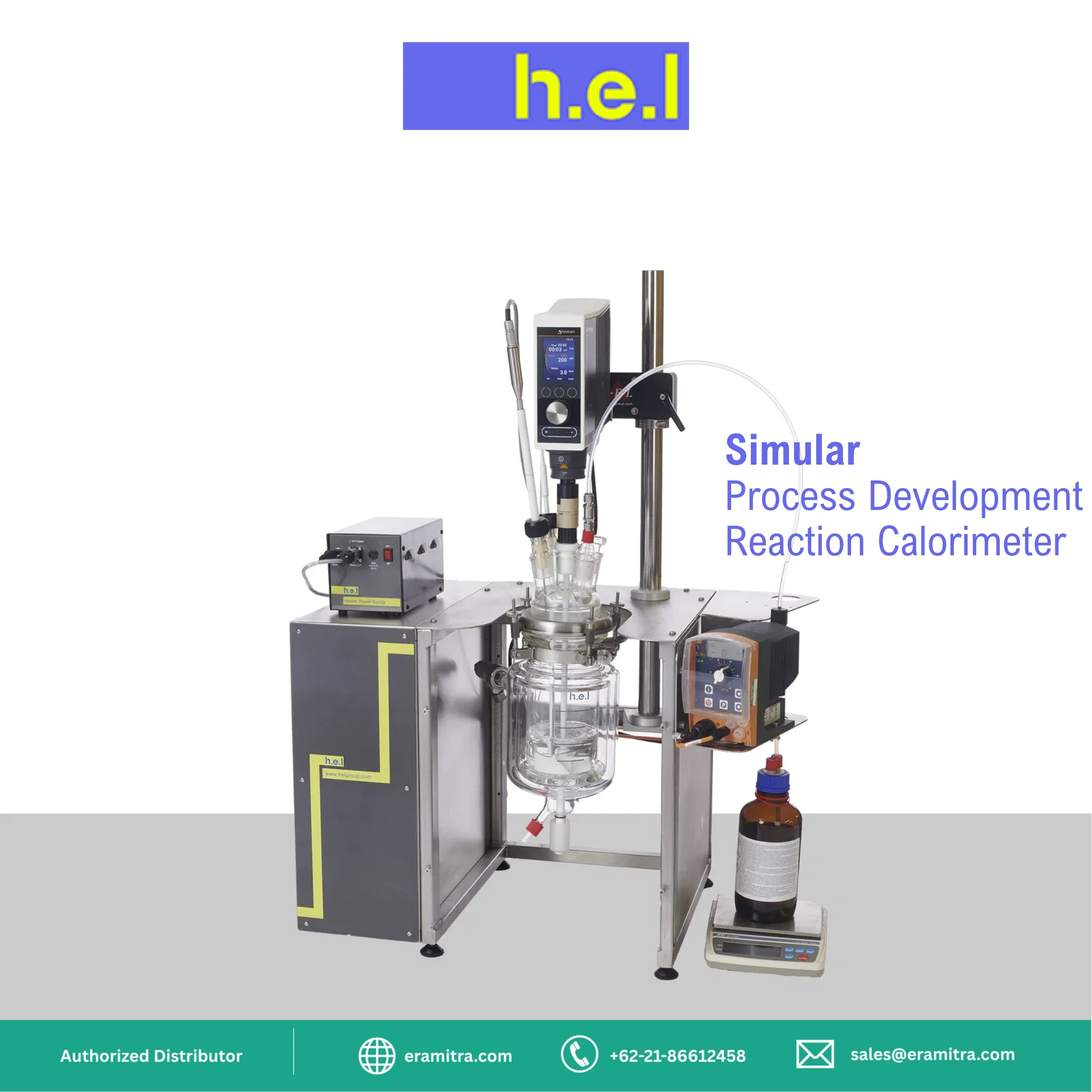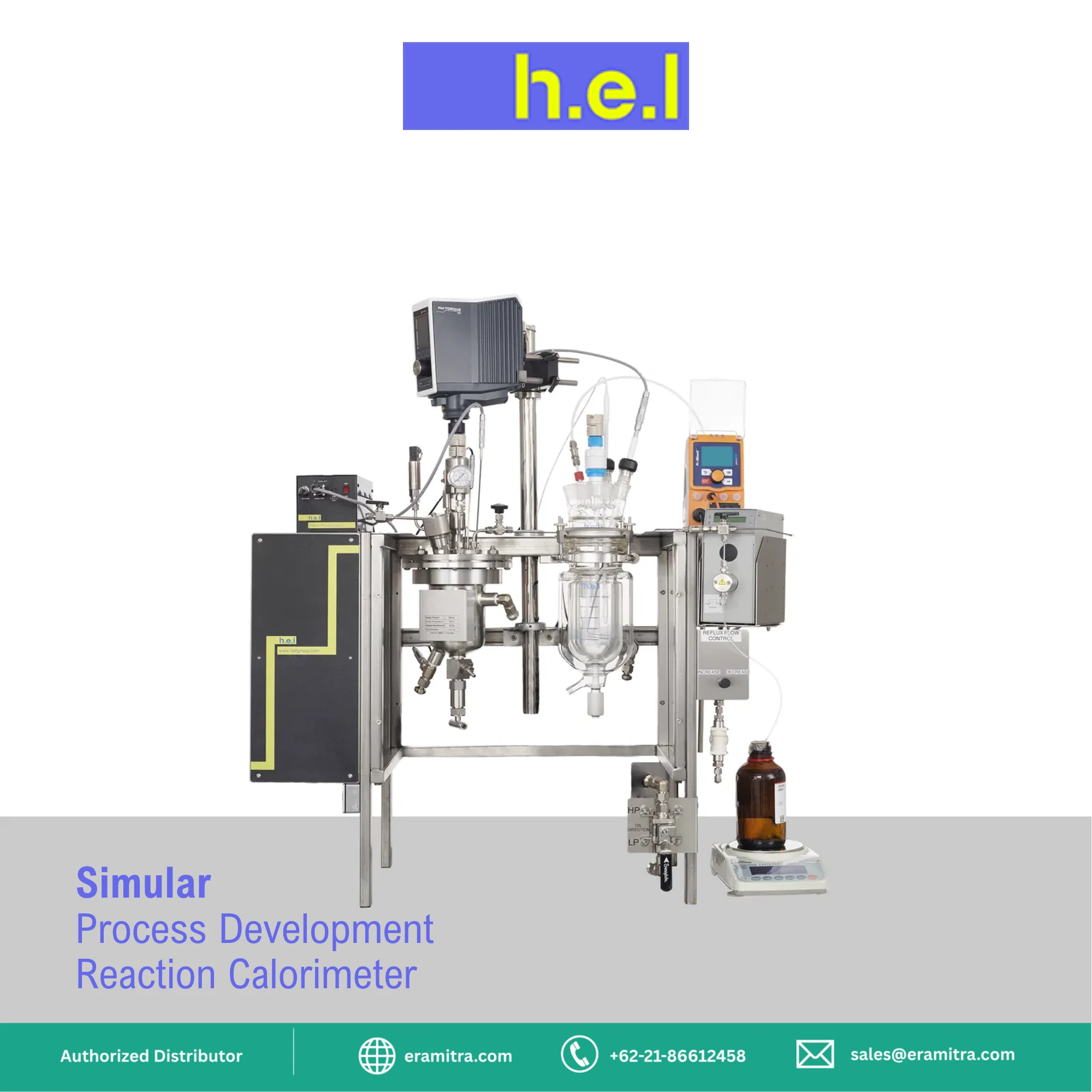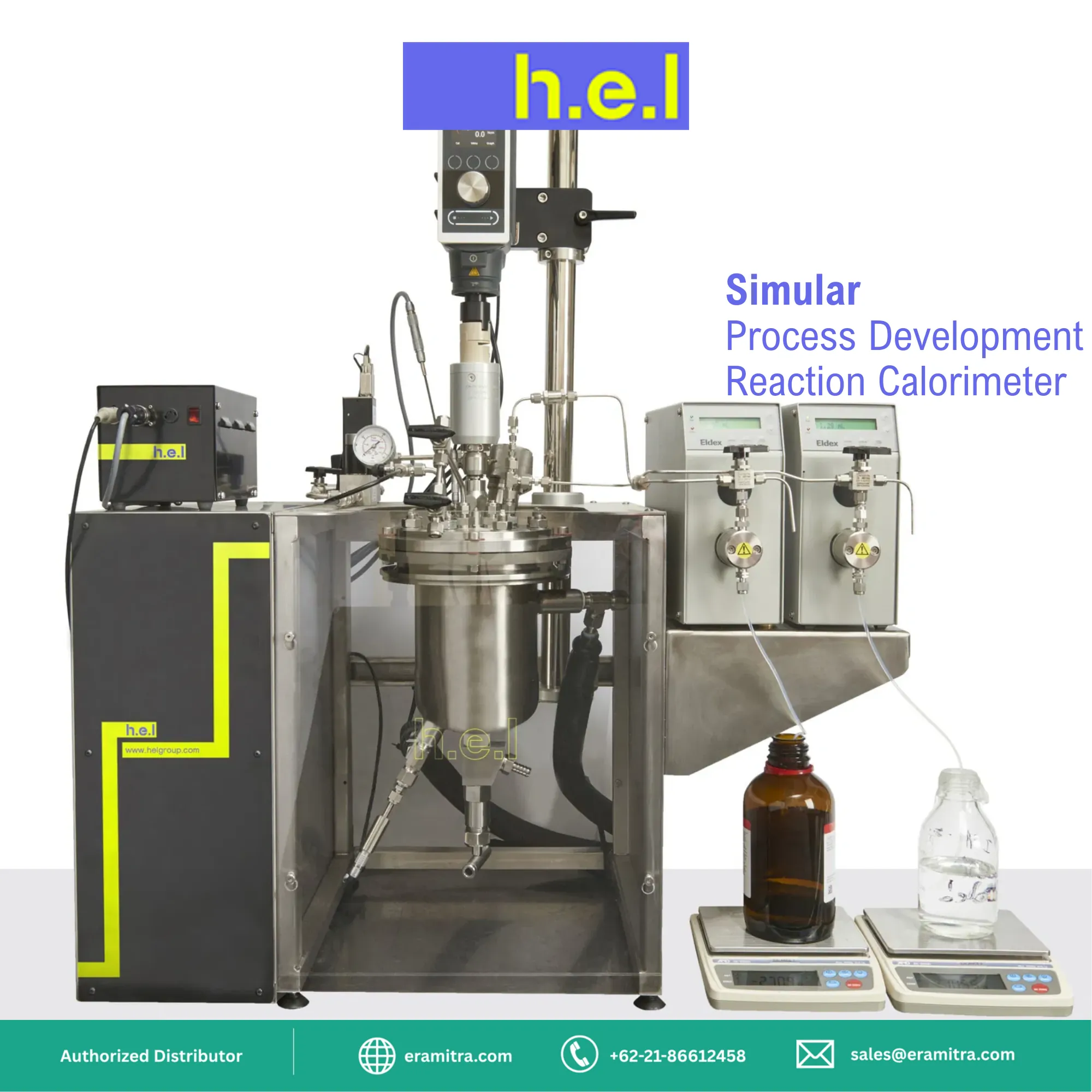Process Development Reaction Calorimeter
This highly configurable system from the H.E.L product family excels in optimizing process conditions and determining safer reaction conditions. With dual reactor options available, offering more flexibility for applications.
In addition to traditional heat flow calorimetry, the Simular offers power compensation calorimetry allowing operators to skip time-consuming calibration steps and get more conditions screened. The Simular is ideally suited for process safety and scale-up of the most varied and demanding reactions.
Overview
Highly Configurable & Flexible System
The Simular Process Development Reaction Calorimeter is a highly configurable and flexible system, designed as part of the H.E.L product family for process safety and chemical synthesis, featuring dual reactor options. Its unique capabilities as a calorimeter and an automated jacketed reactor allow for exceptional versatility in various applications, including adiabatic calorimetry, autocatalysis, and batch and semi-batch reactors.
Optimize Process Conditions
Leveraging the derived thermodynamic and kinetic information of the reaction, the system aims to optimize process conditions, achieving the dual goals of maximizing product yield while minimizing safety hazards. It enables efficient and effective adjustments to key operating parameters by precisely monitoring and controlling the heat flow.
Determine Safer Reaction Conditions
Determining the safer reaction conditions is crucial to ensuring safety during scale-up operations. The system facilitates this by calculating the plant cooling capacity required for maintaining isothermal conditions (Tp) and accurately predicting the maximum temperature the main reaction may reach during a thermal runaway. These calculations are vital in determining the emergency cooling capacity needed for robust scale-up.
Calibration-Free Power Compensation Calorimetry
The Simular Process, Development Reaction Calorimeter, supports both classic heat flow calorimetry and advanced calibration-free power compensation calorimetry. This advanced feature allows users to choose the most appropriate method for their specific reaction requirements, ensuring accurate and reliable measurements for precise process control and optimization.

